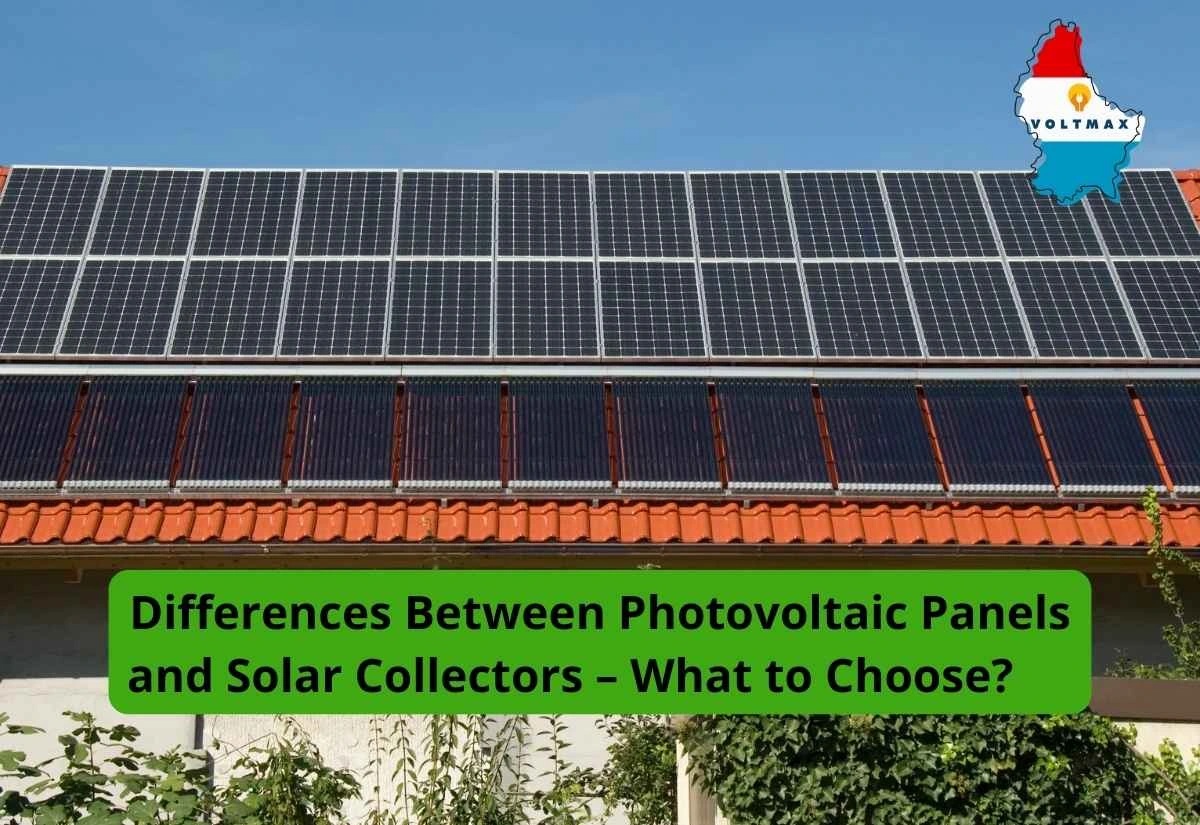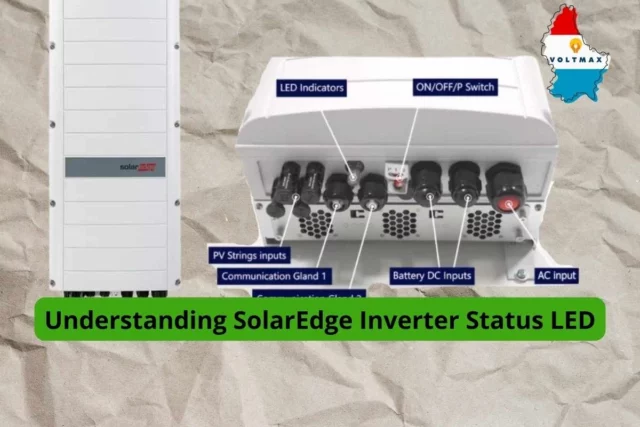
Table des matières
ToggleDifférences entre panneaux photovoltaïques et capteurs solaires – Que choisir ?
L’énergie solaire est de plus en plus populaire, ce qui a suscité un intérêt croissant pour les panneaux photovoltaïques et les capteurs solaires. Les deux systèmes exploitent le rayonnement solaire, mais ils fonctionnent de manière totalement différente et servent des objectifs différents. Avant de faire un investissement, il est essentiel de comprendre les principales différences entre ces deux technologies.
Panneaux photovoltaïques : comment fonctionnent-ils et à quoi servent-ils ?
Les panneaux photovoltaïques (PV) sont utilisés pour produire de l'électricité. Ce procédé est basé sur l'effet photovoltaïque, qui permet de convertir le rayonnement solaire en énergie électrique. Lorsque la lumière du soleil frappe des cellules photovoltaïques en silicium (mono-, polycristallin ou multicristallin), les photons entraînent le déplacement des électrons, ce qui génère un courant électrique.
Les panneaux photovoltaïques sont idéaux pour ceux qui souhaitent réduire leur dépendance aux sources d'énergie traditionnelles. L'énergie produite par les panneaux peut alimenter les appareils électriques domestiques et tout surplus d'énergie peut être stocké dans des batteries ou revendu au réseau.
Principaux avantages des panneaux photovoltaïques :
- Principaux avantages des panneaux photovoltaïques :
- Capacité à alimenter l'ensemble du ménage et des appareils électriques.
- Économies sur les factures d'électricité.
- Économies sur les factures d'électricité.
Capteurs solaires : comment fonctionnent-ils et à quoi servent-ils ?
Capteurs solaires, également connus sous le nom de « solaires », sont principalement utilisés pour chauffage de l'eau sanitaire. Ils fonctionnent en convertissant le rayonnement solaire en chaleur, qui est absorbée par un liquide (généralement un mélange de glycol) circulant dans le système. Ce liquide absorbe la chaleur de l'absorbeur – une plaque spéciale en aluminium ou en cuivre recouverte d'une couche qui absorbe le rayonnement solaire (par exemple, du chrome noir, du titane ou des oxydes de silicium). Le fluide chauffé est ensuite transporté vers un réservoir de stockage, où il chauffe l'eau sanitaire.
Les capteurs solaires sont parfaits pour les ménages ayant une forte demande en eau chaude, par exemple pour les besoins d'hygiène quotidiens ou pour chauffer l'eau de la piscine.
Principaux avantages des capteurs solaires :
- Chauffage efficace de l'eau sanitaire, notamment en été.
- Coûts de chauffage de l'eau réduits.
- Une technologie simple et éprouvée.
Technologie simple et performante.
Bien que les panneaux photovoltaïques et les capteurs solaires exploitent tous deux l’énergie solaire, ils présentent des différences significatives.
| Fonctionnalité | Frais d'installation | Capteurs solaires (Solaires) |
|---|---|---|
| Particularité | Production d'électricité | Capteurs solaires (Solaires) |
| Technologie | Effet photovoltaïque (cellules de silicium) | Conversion du rayonnement en chaleur (absorbeur) |
| Consommation d'énergie | Alimentation des appareils électriques | Capteurs solaires (Solaires) |
| Consommation d'énergie | Toute l'année (nécessite la lumière du jour) | Meilleur pendant les mois ensoleillés |
| Stockage de l'énergie | Peut stocker de l'énergie dans des batteries | Pas de stockage – chauffe l’eau sur place |
| Coûts initiaux | Plus élevé mais potentiel de revente d'énergie | Inférieur à PV |
| Frais d'installation | Alimenter la maison, charger les appareils | Capteurs solaires (Solaires) |
Que choisir : capteurs photovoltaïques ou solaires ?
Le choix entre panneaux photovoltaïques et capteurs solaires dépend en grande partie de vos besoins.
Si votre objectif principal est de produire de l'électricité pour alimenter votre maison, votre éclairage ou vos appareils de charge, le photovoltaïque photovoltaïque seront plus adaptés. Les panneaux photovoltaïques peuvent fonctionner toute l'année, même en hiver, bien que leur efficacité puisse diminuer en cas de diminution de l'ensoleillement.
chauffage efficace de l'eau sanitaire chauffage efficace de l'eau domestiqueLes capteurs solaires peuvent être une meilleure option, surtout pendant les mois les plus chauds. Ils sont idéaux pour les familles ayant des besoins élevés en eau chaude et pour celles qui cherchent à réduire leurs coûts de chauffage de l'eau sans avoir besoin de grandes quantités d'électricité.
Alternative : Photovoltaïque avec chauffe-eau
De plus en plus de personnes optent pour des panneaux photovoltaïques associés à un chauffe-eau électrique. Cette configuration permet production d'électricité pour alimenter la maison ainsi que pour alimenter la maison ainsi que en utilisant une chaudière électrique. Cette solution polyvalente peut s'avérer plus efficace et plus flexible que les capteurs solaires autonomes, offrant une plus grande indépendance énergétique.
Conclusion
Abandon panneaux photovoltaïques et capteurs solaires – ont leurs avantages et leurs inconvénients. Le choix dépend de votre priorité : produire de l’électricité ou chauffer de l’eau. Il vaut également la peine d’envisager la combinaison du photovoltaïque avec un chauffe-eau électrique, qui permet d’utiliser au maximum l’énergie solaire à diverses fins.
N’oubliez pas que le photovoltaïque et les capteurs solaires sont des investissements qui peuvent générer des économies à long terme et contribuer à la protection de l’environnement en utilisant des énergies renouvelables.
Contactez-nous pour en savoir plus sur notre offre. Laissez vos coordonnées ou utilisez les informations dans le champ «Onglet « Contact ».







